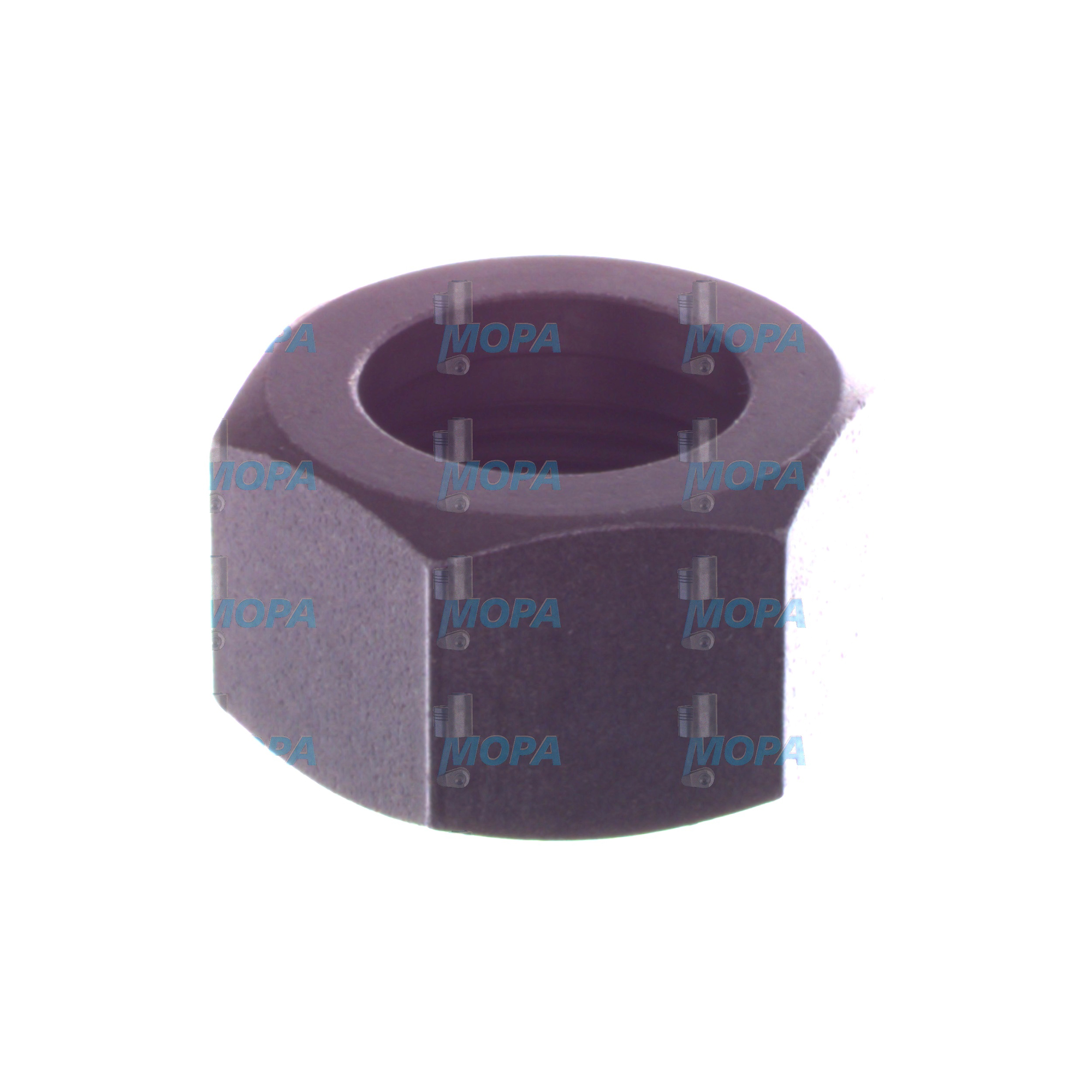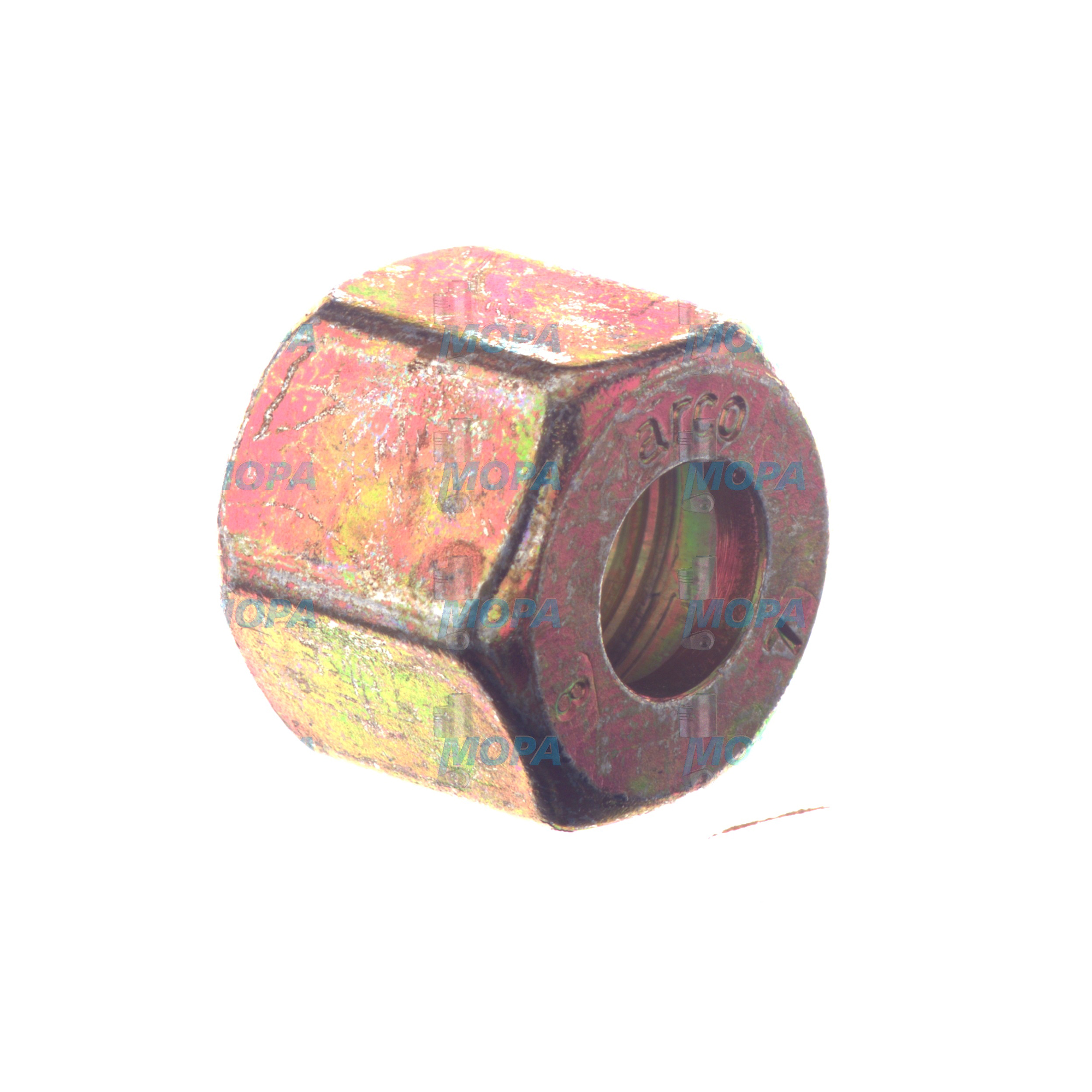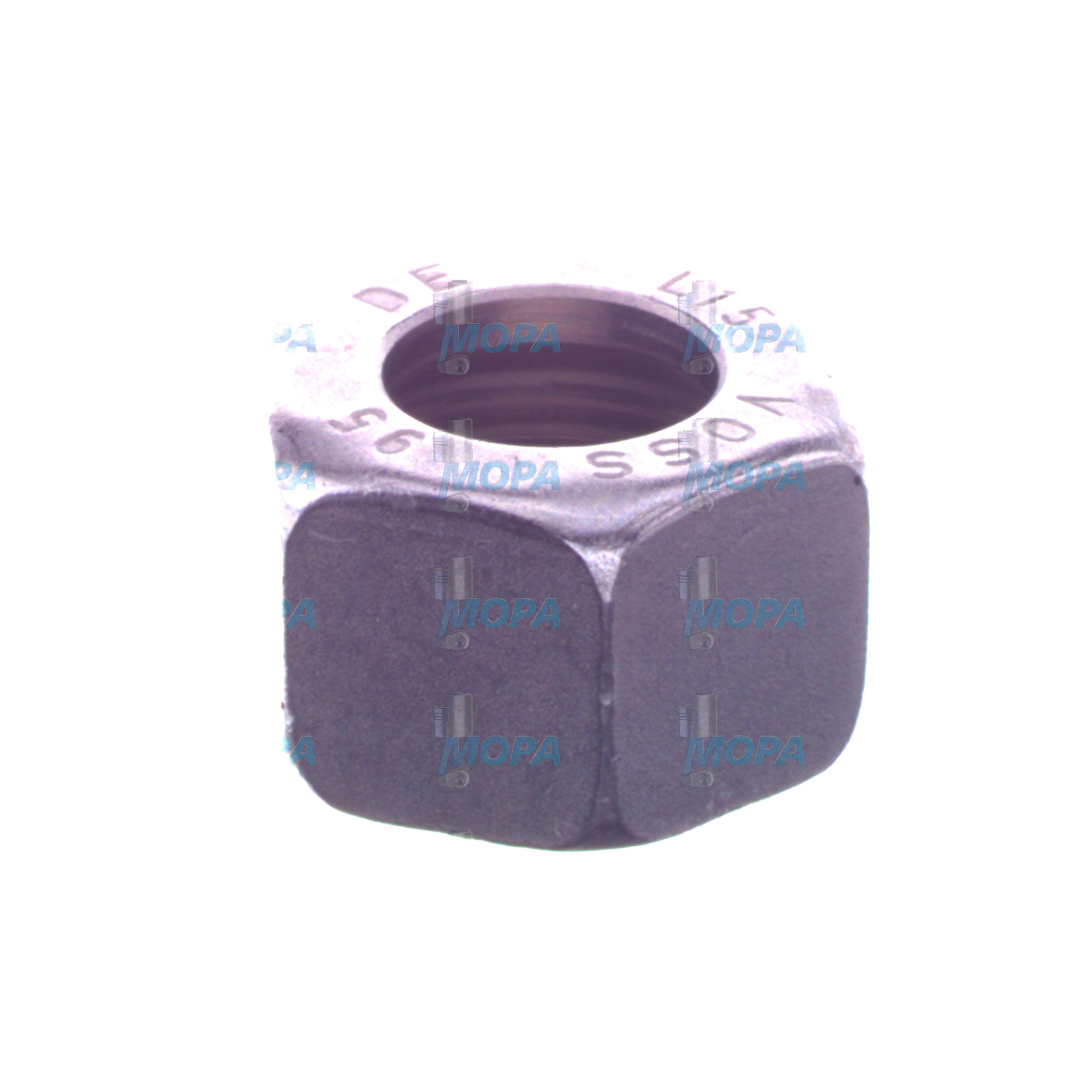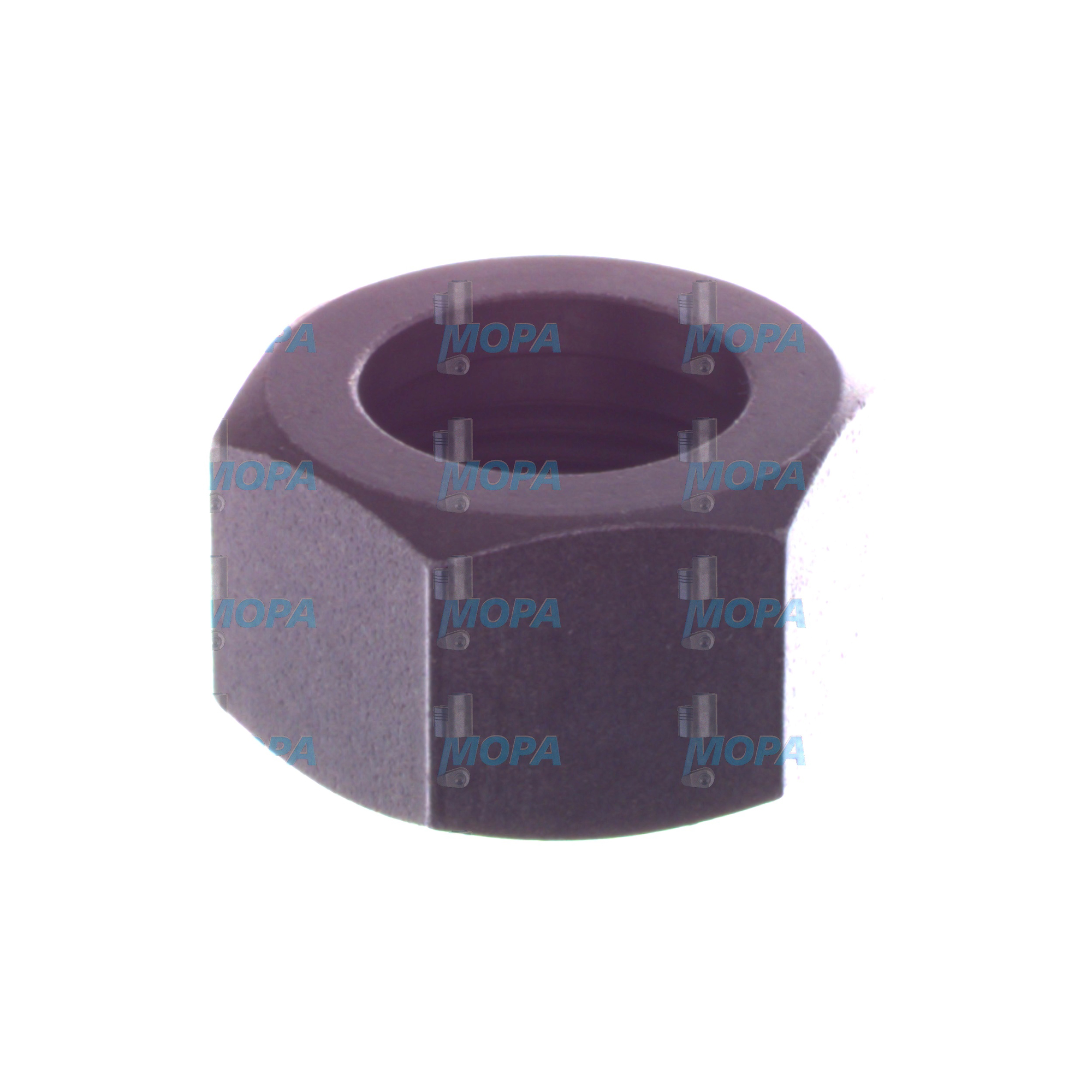UNION NUT Nuts for marine and diesel engines
Nuts are fundamental fasteners in every engine, from compact gensets to large two-stroke propulsion units. They convert applied torque into reliable clamping force, hold critical interfaces together under vibration and thermal cycling, and ensure leak-tight connections on fluid lines. Within this category, the UNION NUT stands out as a specialized component used to securely couple tubing and fittings—especially in fuel transfer, lube oil, cooling water, and instrumentation circuits—where repeatable sealing and serviceability are essential. Choosing the correct nuts and a properly specified UNION NUT for each application directly influences engine performance, efficiency, and operational safety.
Technical function of UNION NUT and Nuts in a diesel engine or marine engine
General-purpose engine nuts (hex nuts, prevailing torque nuts, lock nuts) create and maintain joint preload. When correctly torqued, they clamp cylinder heads, manifolds, turbocharger brackets, mounts, and accessories so that gaskets seal, components remain aligned, and dynamic loads are controlled. Achieving the right preload depends on thread quality, nut grade, friction coefficient (K-factor), lubrication, and surface finish. In service, the nut must retain preload despite vibration, pressure pulsations, and temperature gradients—conditions typical for a marine engine room.
A UNION NUT is engineered for fluid connections. In a diesel engine, it pairs with a ferrule set or flared tube end and a mating port to compress the sealing elements axially as the UNION NUT is tightened. This provides a metal-to-metal or metal-to-polymer seal capable of withstanding pressure spikes, pulsation, and thermal expansion in lines such as HFO/MDO transfer, diesel day tank supply, lube oil galleries, jacket water, charge-air coolers, and instrument air. In a marine engine or auxiliary skid, the UNION NUT’s precise thread form and bearing surfaces translate torque into predictable axial force, ensuring consistent compression of the seal without overstressing the tube or fitting.
Key engineering considerations include:
- · Proper thread standard and tolerance (ISO metric or UNF) for reliable engagement.
- · Suitable material selection (alloy steel, stainless steel) for strength and corrosion resistance.
- · Surface treatment (zinc-nickel, phosphate) to stabilize friction and mitigate corrosion.
- · Temperature capability matched to exhaust-side or hot oil environments.
- · Vibration resistance via prevailing torque designs or locking features where required.
- · Pressure rating of the UNION NUT assembly for the specific fluid and duty.
- · Compatibility with tube hardness, wall thickness, and ferrule/flare geometry.
- · Repeatable torque-tightening behavior to achieve target preload and sealing.
In practice, a UNION NUT often interfaces with OEM parts such as valves, filters, pumps, and coolers, where precise nose angles, seat profiles, and thread finishes are critical. Correct pairings prevent micro-leaks, thread galling, and fretting—issues that otherwise escalate maintenance costs and downtime.
Importance of Nuts and UNION NUT for engine reliability and service life
Fasteners are small components with outsized impact. Loss of preload on structural nuts can lead to gasket blowouts, warped flanges, misalignment of rotating equipment, and elevated vibration—each a pathway to accelerated wear or catastrophic failure. On fluid systems, improper or worn UNION NUT connections permit fuel, oil, or coolant leaks. Beyond the obvious mess and environmental exposure, leaks impair lubrication and cooling, raise fire risk, and can trigger unplanned shutdowns. In critical marine engine applications, even a minor seep at a UNION NUT can cause air ingress on suction lines, cavitation in pumps, and unstable fuel delivery, undermining efficiency.
Corrosion, thread damage, and incorrect torque are common root causes. Reusing nuts beyond recommended cycles, mixing thread standards, or substituting unsuitable materials magnifies risk. Conversely, correctly specified nuts and UNION NUT components preserve joint integrity through thermal cycling, pressure pulsation, and hull-induced vibration. The result is longer service intervals, stable performance, and predictable total cost of ownership.
Advantages of OEM spare parts suitable for Nuts and UNION NUT
Selecting OEM spare parts suitable for nuts and UNION NUT assemblies provides measurable advantages across performance, reliability, budget, and service life:
Performance: OEM spare parts suitable for union-type connections are designed around precise seat angles, ferrule geometry, and thread tolerances that deliver consistent sealing force at the specified torque. This consistency helps maintain fuel atomization quality, stable oil pressure, and leak-free cooling circuits.
Reliability: Material grades and heat treatments are matched to load cycles, temperature corridors, and corrosive exposures typical of a diesel engine. Surface finishes and coatings are optimized to control friction scatter, improving preload accuracy and retention. Traceability and batch-level testing reduce variability in critical fasteners.
Budget: While the unit cost of a robust nut or UNION NUT may be modestly higher than a generic substitute, the reduction in rework, leak-related cleaning, consumables, and unplanned stoppages delivers a lower lifetime cost. Correct fitment also minimizes secondary damage to studs, flanges, and tubing.
Service life: OEM spare parts suitable for UNION NUT assemblies maintain sealing performance over repeated maintenance cycles. Predictable torque-to-tension characteristics and correct metallurgy mitigate galling and fatigue, extending the life of both the nut and the mating components.
MOPA as a partner for OEM spare parts Nuts and UNION NUT
MOPA is an experienced, reliable partner for OEM spare parts across nuts and UNION NUT requirements. We combine technical know-how with fast, secure procurement to keep diesel and gas engines in service. Our team cross-references part numbers, thread standards, and material specifications to supply the right component the first time—whether you need a UNION NUT for a marine engine fuel system, high-strength hex nuts for turbocharger brackets, or locking solutions for vibration-prone mounts.
With MOPA, purchasers and shipowners benefit from short lead times, controlled quality, and transparent documentation. We support global logistics to ship directly to vessels, shipyards, and power plants, and we maintain strict handling to protect threads, seats, and plating. The result is dependable delivery of OEM parts that fit, seal, and perform as intended.
Conclusion on UNION NUT Nuts for marine and diesel engines
Nuts—and especially the UNION NUT in fluid connections—are vital to engine integrity, efficiency, and safety. Specifying the correct design, material, and thread standard prevents leaks, preserves preload, and stabilizes critical systems.
By sourcing OEM spare parts suitable for UNION NUT and related nuts through MOPA, you secure consistent performance, longer service life, and better budget outcomes from your diesel and gas engines.









